US officials split on Ukraine truce prospects
Top US officials have given mixed signals about the prospect of a Ukraine ceasefire, bringing uncertainty to peace talks, as Russia reneged on Ukrainian energy targets.
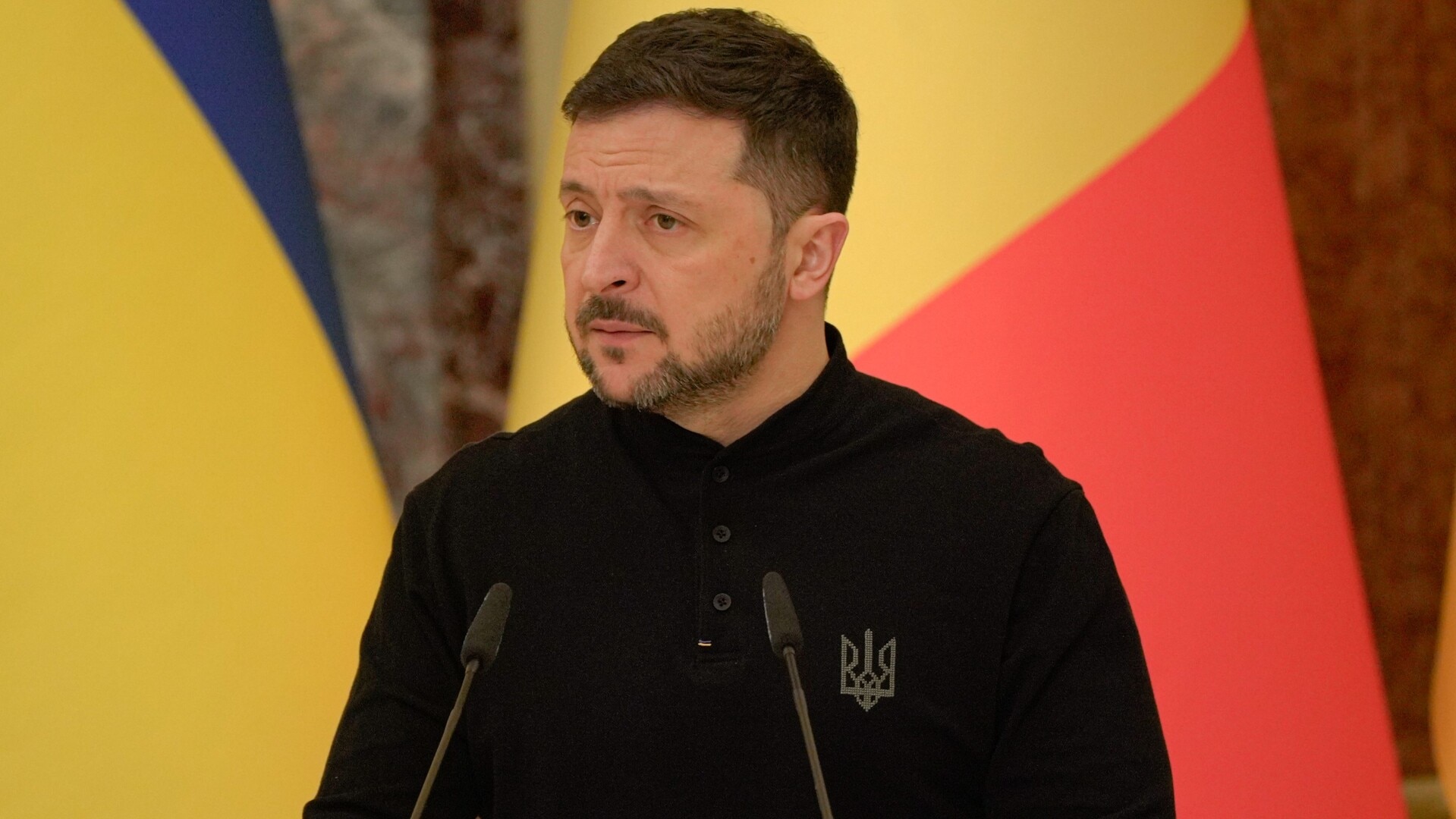
World
Don't miss out on the headlines from World. Followed categories will be added to My News.
Top US officials gave mixed signals about the prospect of a Ukraine ceasefire on Friday, bringing uncertainty to the peace process just as Russia abandoned a moratorium on striking Ukrainian energy targets.
US Secretary of State Marco Rubio warned Washington would “move on” from peace talks unless it saw progress soon.
But speaking on a trip to Italy, US Vice President JD Vance said he was “optimistic” about ending the three-year war.
President Donald Trump has been pressing both Moscow and Kyiv to agree on a truce, but has failed to extract any major concessions from the Kremlin, despite repeated negotiations between his administration and Russia.
One of the few commitments Mr Trump had wrangled from Russia - a temporary moratorium on striking Ukrainian energy infrastructure - “expired” on Friday, Kremlin spokesman Dmitry Peskov said in response to an AFP question.
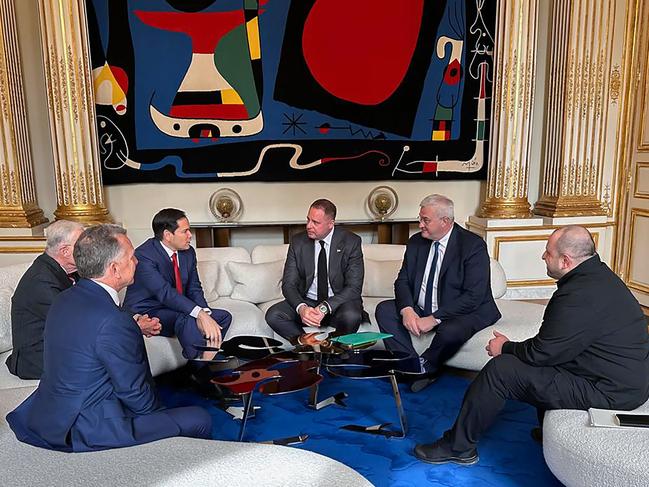
Moscow has kept up strikes on Ukraine, killing at least two people and wounding dozens more in attacks on the northeastern regions of Kharkiv and Sumy, Ukrainian officials said.
After meeting European officials in Paris to discuss a ceasefire, Mr Rubio said Washington needed to figure out soon whether a ceasefire was “doable in the short term”.
“Because if it’s not, then I think we’re just going to move on,” he told reporters.
Moments later, Mr Vance said he did not want to prejudge the negotiations, but declared he was “optimistic” about the chances of peace.
France hosted meetings between US and European officials in Paris on Thursday, saying the talks had launched a “positive process”.
The meetings included French President Emmanuel Macron, Rubio and US envoy Steve Witkoff.
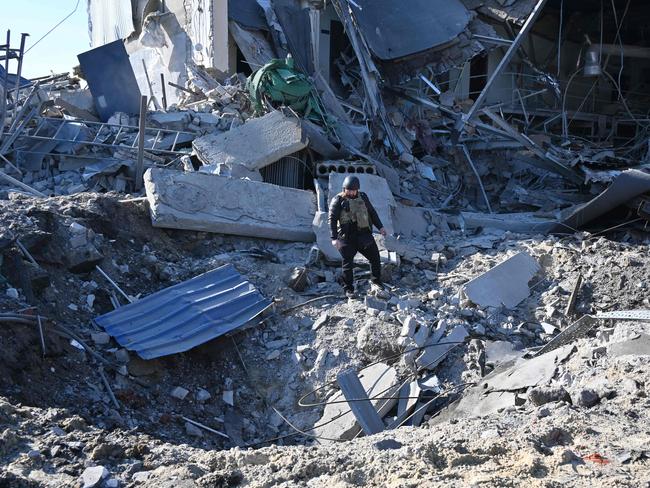
European officials had expressed dismay at being shut out from the peace process, while Ukraine has expressed concern that Witkoff - one of Trump’s closest allies - is biased towards Russia.
Ukrainian President Volodymyr Zelensky accused Witkoff on Thursday of adopting the “strategy of the Russian side,” after the US envoy suggested a peace deal with Moscow hinged on the status of Ukraine’s occupied territories.
“He is consciously or unconsciously, I don’t know, spreading Russian narratives,” Zelensky told journalists.
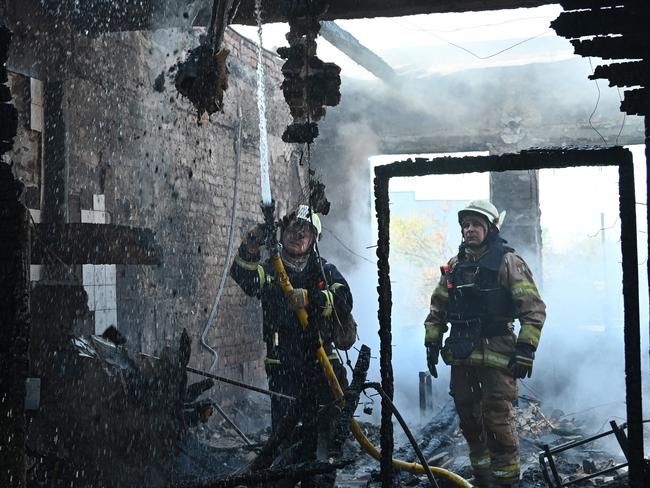
Witkoff told Fox News on Monday that a peace settlement depended on “so-called five territories” - the Ukrainian regions of Donetsk, Lugansk, Zaporizhzhia, Kherson and Crimea, that Russia claims to have annexed.
The Kremlin wants its claims over the regions to be recognised as part of any peace deal, a proposal that Ukraine has balked at. Moscow does not fully control any of them except for Crimea, which it seized in 2014.
Meanwhile, Zelensky slammed the latest attacks on his country, which came just days before Easter.
Kyiv announced it had received the bodies of 909 soldiers from Russia. “This is how Russia started Good Friday - with ballistic missiles, cruise missiles, Shahed drones. A mockery of our people and cities,” Mr Zelensky said on Telegram.
Russia said it had hit “key drone production sites” and Ukrainian military airfields.
FOLLOW UPDATES BELOW:
MEMORANDUM OF INTENT ON MINERALS DEAL
Ukraine and the United States signed a “memorandum of intent” to move forward with a fraught deal for US access to Kyiv’s natural resources and critical minerals, Kyiv said.
“We are happy to announce the signing, with our American partners, of a Memorandum of Intent, which paves the way for an Economic Partnership Agreement and the establishment of the Investment Fund for the Reconstruction of Ukraine,” Ukraine’s first deputy prime minister Yulia Svyrydenko said on X.
“This is a memorandum of intent. And we have positive, constructive intentions,” Ukraine President Volodymy Zelensky told reporters in Kyiv on Thursday.
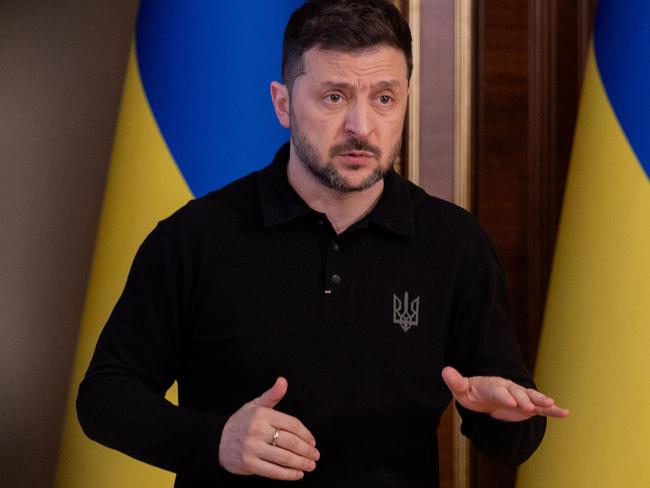
He added that the offer to sign the memorandum before the comprehensive deal, which would require ratification in the Ukrainian parliament, had come from the US side.
Kyiv and Washington had planned to sign a deal on extracting Ukraine’s strategic minerals weeks ago, but a clash between presidents Donald Trump and Volodymyr Zelensky in February temporarily derailed work on the agreement.
Mr Trump wants the deal - designed to give the US royalty payments on profits from Ukrainian mining of resources and rare minerals - as compensation for aid given to Ukraine by his predecessor, Joe Biden.
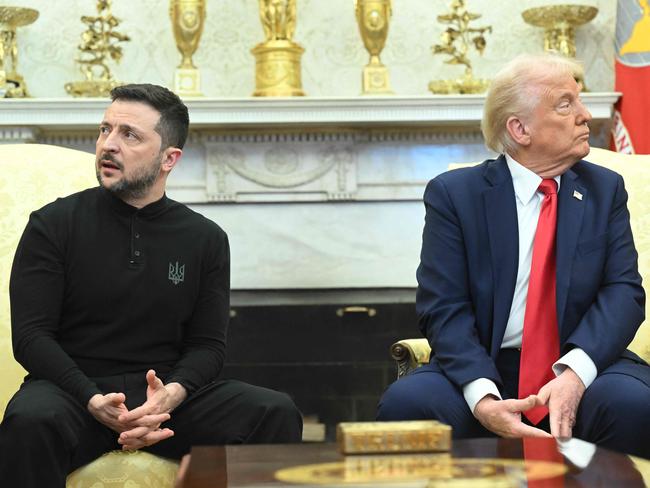
Svyrydenko did not publish details of the memorandum, but said work continued towards securing a final agreement.
“We hope that the Fund will become an effective tool for attracting investments in the reconstruction of our country, modernisation of infrastructure, support for business, and the creation of new economic opportunities,” she said.
“There is a lot to do, but the current pace and significant progress give reason to expect that the document will be very beneficial for both countries.”
US officials say boosting American business interests in Ukraine will help deter Russia from future aggression in the event of a ceasefire.
Kyiv is pushing for concrete military and security guarantees as part of any deal to halt the three-year war.
NO WORD FROM RUSSIA ON WHEN HITS ON ENERGY WILL STOP
The Kremlin has declined to specify when a 30-day moratorium on strikes on Ukraine’s energy infrastructure would end – or whether it would be extended – just hours before the agreement was set to expire.
Russian President Vladimir Putin said on March 18 he had ordered his army to halt attacks on Ukraine’s energy infrastructure for 30 days, though Kyiv has accused Moscow of firing at those type of sites on multiple occasions since.
“We’ll keep you informed. I am not yet ready to tell you what decision has been made,” Kremlin spokesman Dmitry Peskov told reporters when asked about the exact time Putin’s order was due to expire.
The Kremlin said Putin issued the halt on strikes after a phone call with Donald Trump.
A week later, US officials held separate talks with Russian and Ukrainian delegations in Saudi Arabia, after which the White House said both sides had agreed to “develop measures” to implement an “agreement to ban strikes against energy facilities of Russia and Ukraine”.
But no formal agreement was put in place and both have consistently accused each other of continuing to strike energy targets since then.
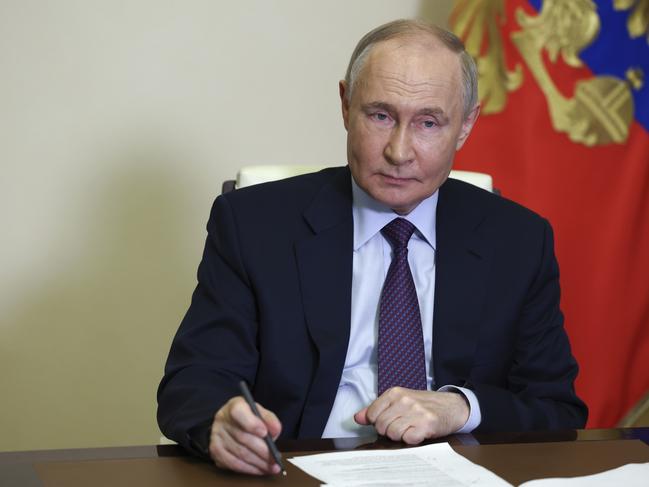
UKRAINE FIRES BACK AFTER DEADLY RUSSIAN MISSILE ATTACK
Ukraine has fired back at Russia in retaliation to a missile attack that killed 35 people as NATO’s chief visited the country on Tuesday.
Ukraine’s military claimed it hit a base belonging to the Russian rocket brigade that conducted the missile attack on Sumy on Sunday.
“(A base) of the 448th missile brigade of the Russian occupiers was hit, a secondary detonation of ammunition was recorded. The results of the strike are being clarified,” Volodymyr Zelensky’s army said in a statement on Telegram.

NATO chief Mark Rutte met with the Ukrainian leader on a surprise visit on Tuesday and said Donald Trump’s push for a ceasefire and lasting peace in Ukraine was “not easy”.
“These discussions are not easy, not least in the wake of this horrific violence. But we all support President Trump’s push for peace.”
Mr Zelensky, meanwhile, called for effective preparation of a foreign troop contingent to deter Russia from attacking Ukraine again should a peace deal be secured.
“Britain, France and other NATO countries are already actively preparing the ground for a security contingent in Ukraine. It is important that we all be fast enough and efficient in this process,” he said.
CHINESE FIGHTERS IN UKRAINE SPEAK OUT
Two Chinese nationals captured while fighting for Russia in Ukraine have denied being sent by Beijing, warning others not to get involved in the war.
At a press conference held by Ukrainian authorities, the prisoners of war – flanked by armed guards – told journalists they hoped to be released.
The event followed claims by President Volodymyr Zelensky that several hundred Chinese nationals are fighting on the front lines, accusing Moscow of pulling Beijing into its war.
However, the Kremlin denied the claim, while Beijing warned parties to the conflict against making “irresponsible remarks”.
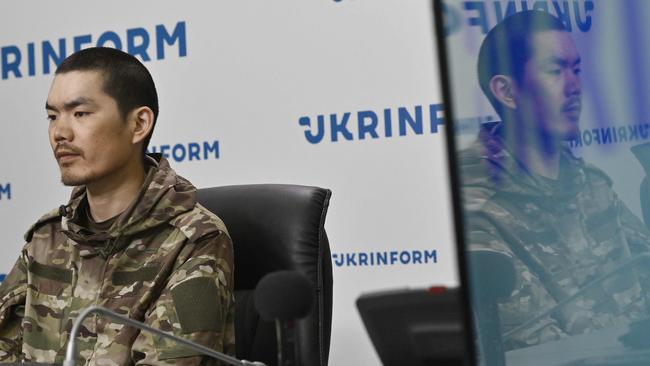
Two Chinese men dressed in camouflage uniform were escorted into a Kyiv press centre in handcuffs and sat flanked by armed Ukrainian soldiers, with no way of telling whether they were expressing themselves of their own free will.
Speaking Chinese, they said they were captured fighting in the eastern Donetsk region after joining the army via online ads.
At a rare press briefing, two Chinese POWs detail how they ended up on the front lines in Ukraine — allegedly without state backing. Isolated, disoriented, and used as cannon fodder by Russian forces, they now speak out.
— GMan (Òленн) ☘ï¸ðŸ‡¬ðŸ‡§ðŸ‡ºðŸ‡¦ðŸ‡ºðŸ‡¸ðŸ‡µðŸ‡±ðŸ‡®ðŸ‡±ðŸŠðŸŒ» (@FAB87F) April 14, 2025
Little Green Men? pic.twitter.com/hAHgRPoR6K
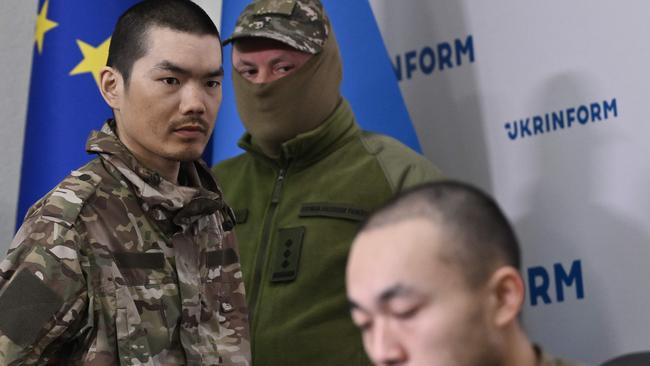
“I hope China can exchange me with Russia and Ukraine and bring me back to China,” said one of the men, 26-year-old Zhang Renbo.
The other, 33-year-old Wang Guangjun, said: “To my compatriots who want to join the Ukraine war, I want to say: don’t take part in this war”.
The soldier accused Russia of lying about its military strength and Ukraine’s weakness.
“When you really participate in the war, when the moment of the fighting comes, you will find that everything is a lie,” he said.
Guangjun said he was targeted by Russian “chemical weapons” right after he was taken captive by a Ukrainian soldier.
“I was losing my strength and fainting … Then I felt someone grabbing my collar and pulling me out into the fresh air,” Wang said.
According to Wang, after he was captured by Ukrainian troops, he found himself in a dugout with a Ukrainian soldier, taking shelter during a Russian attack. He said that the Ukrainian helped him to survive what Wang described as a “spray gas” attack.
“(Ukrainian) soldiers protected us and have been treating us well this whole time,” he added.
– with AFP
More Coverage
Originally published as US officials split on Ukraine truce prospects


